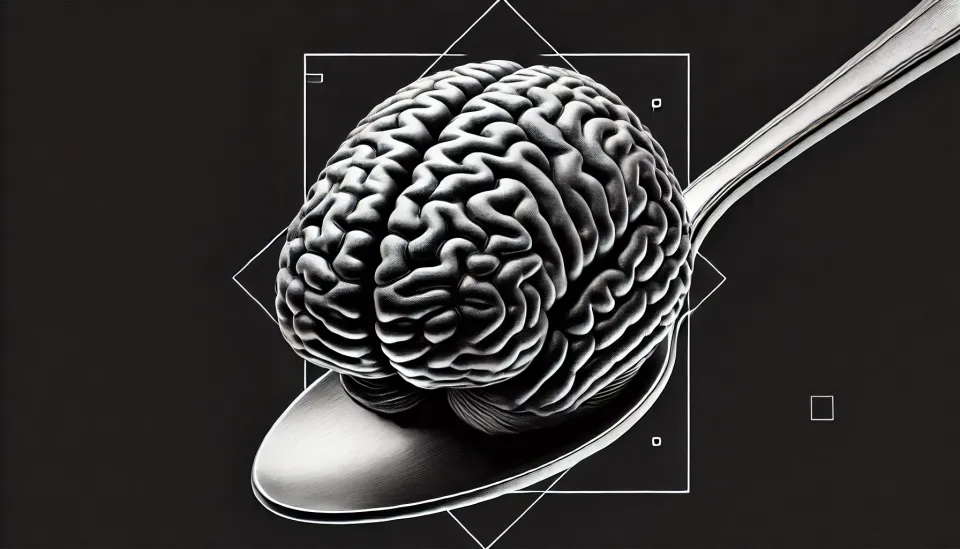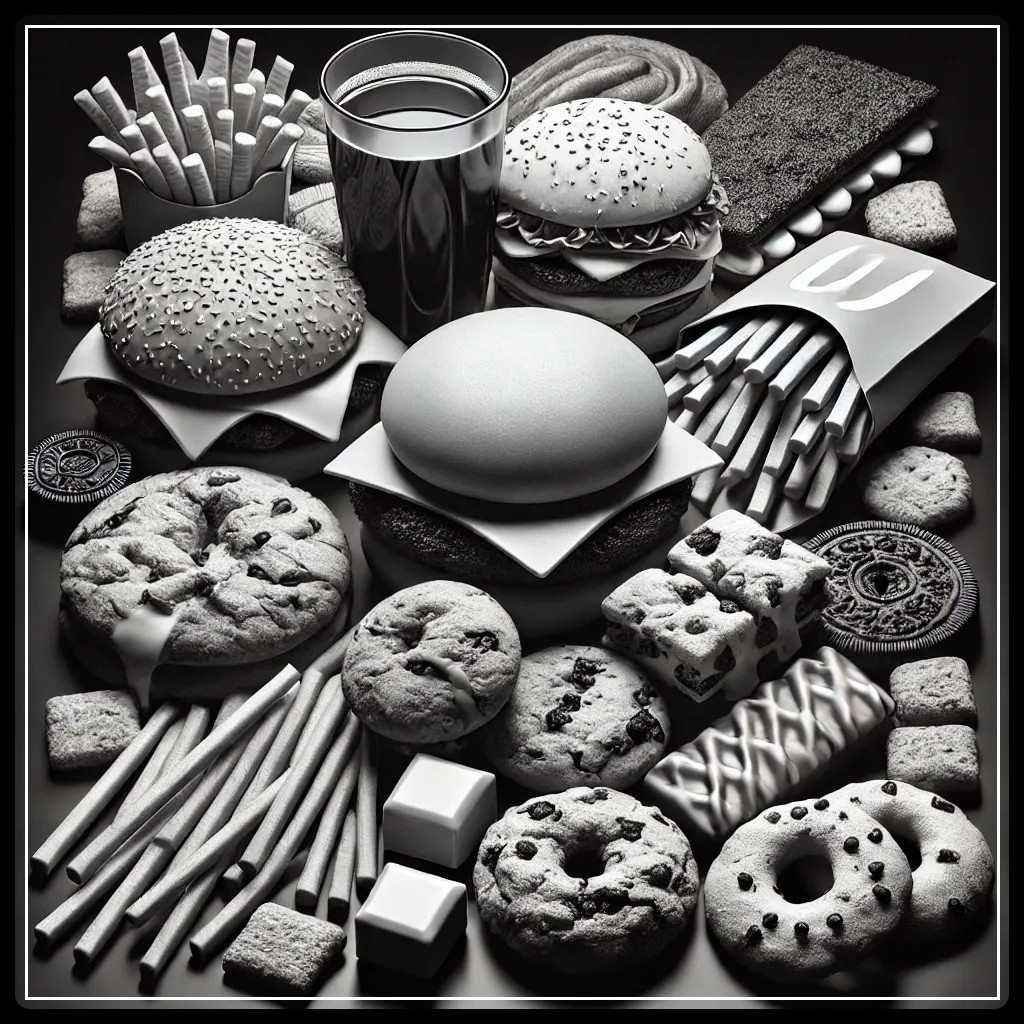Is Your Brain Sabotaging Your Diet?

Ever wonder why that bag of chips or a slice of pizza seems irresistible, even when you’re not truly hungry?
You’re not alone. Our eating habits are deeply influenced by the physiology of our brains and the hormones they release.
The brain, a complex organ with multiple systems working in tandem, plays a powerful role in determining when, what, and how much we eat.
The brain doesn’t just tell us to eat when we’re hungry; it also reacts to highly processed, hyper-palatable foods—those loaded with sugar, fat, and salt—in ways that can override our natural hunger signals.
Understanding this intricate dance between brain signals and eating behavior can help us make more mindful choices and regain control over our eating habits.
The Brain and Hyper-Palatable Foods: The Science of Cravings

Hyper-palatable foods are specifically designed to be irresistible. Think of your favorite fast food, cookies, or snacks—these are often high in sugar, fat, and salt. When we consume these foods, our brain releases dopamine, the “feel-good” neurotransmitter. This release of dopamine creates a pleasurable sensation, reinforcing the desire to eat more of those foods in the future.
But here’s the catch: the more we eat these foods, the more our brains crave them. Over time, the brain's reward system can become hijacked, leading to overeating and even addiction-like behaviors. This isn’t just about lack of willpower—it's about biology.
Our brains are wired to seek pleasure and avoid pain, and this evolutionary mechanism was crucial for survival.
However, in today’s world, where hyper-palatable foods are easily accessible, this mechanism can backfire, leading us to eat based on cravings rather than actual hunger.
Leptin and the Feedback Loop: Understanding Weight Management
Enter leptin, a hormone that plays a crucial role in regulating hunger and body weight. Leptin is produced by fat cells and signals the brain when the body has enough energy stored, essentially telling us to stop eating.
In a balanced system, higher levels of leptin signal the brain to decrease appetite, while lower levels encourage eating to replenish energy stores.
However, in some cases, the leptin feedback loop can become dysfunctional. This is particularly true in the case of leptin resistance, a condition where the brain no longer responds effectively to leptin signals. When this happens, the body doesn’t get the message that it’s full, leading to overeating and, often, weight gain.
Hyper-palatable foods can also contribute to leptin resistance. As we consume these foods, they can cause inflammation and disrupt normal leptin signaling in the brain.
This creates a vicious cycle: we eat more because we don't feel full, and the more we eat, the less our brain recognizes the signal to stop.
Balancing the Brain’s Signals with the Body’s Needs
Understanding how your brain and hormones influence your eating habits is empowering. It means that when you reach for that bag of chips or go for a second slice of cake, it’s not just about lacking self-control—it’s about your brain's hardwired signals reacting to those foods.
However, with awareness and strategic steps, you can balance your body’s genuine needs with your brain’s signals.
Here are some strategies to help you regain control:
- Prioritize Whole Foods: Choosing foods that are less processed and closer to their natural state can help recalibrate your brain's reward system. Whole foods like fruits, vegetables, lean proteins, and whole grains don’t overstimulate the brain’s pleasure centers the way hyper-palatable foods do.
- Be Mindful of Portions and Triggers: Paying attention to portions and recognizing triggers that lead to overeating can help you stay in tune with your body's true hunger and fullness signals. Are you eating because you're hungry, or because you're stressed or bored? Mindfulness practices like journaling or pausing before eating can help you distinguish between the two.
- Encourage Regular Physical Activity: Exercise isn’t just good for the body; it’s good for the brain, too. Physical activity helps regulate dopamine and other neurotransmitters that influence mood and cravings, making it easier to resist the pull of hyper-palatable foods.
- Ensure Adequate Sleep: Lack of sleep can disrupt the hormones that regulate hunger, like ghrelin and leptin, leading to increased cravings and poor food choices. Aim for 7-9 hours of quality sleep each night to help balance these hormones.
- Practice Self-Compassion and Patience: Changing eating habits that are deeply wired into our brains takes time and practice. Be kind to yourself throughout the process. Celebrate small wins and recognize that slip-ups are part of the journey.
Weekend Introspection: Reflect on Your Eating Habits
As we head into the weekend, take some time to reflect on your own eating habits. Are you more often driven by genuine hunger or by cravings triggered by hyper-palatable foods?
Do you notice certain times, emotions, or situations where you tend to eat more out of habit than hunger?
Consider how you can balance your body’s needs with your brain’s signals.
Could you try swapping one hyper-palatable snack for a healthier, whole-food alternative?
Or maybe implement a new mindfulness practice when you feel the urge to snack?
Remember, understanding why your brain drives your eating habits is the first step toward making more intentional, balanced choices that support your overall well-being.
Food for Thought
"Your brain is a powerful driver of your eating habits, but with awareness and mindful choices, you can steer the wheel toward a healthier path."
Until next time
RD Bert